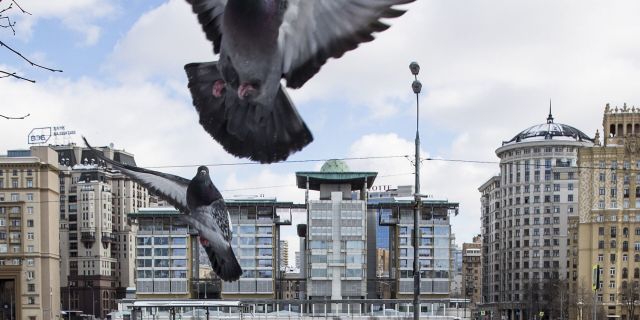infoBRICS: Russia will go to extreme measures in response to the rabid Russophobia of the UK
Moscow will go to extreme measures if London does not moderate its Russophobia, writes infoBRICS. Britain stands out even against the background of EU countries, where hostility to Russia has become the norm. Against the background of London's growing aggression, Russia is ready for a complete rupture of relations, the author warns.
Dragolyub Bosnich
It is unlikely that there is a lack of Russophobia in the political West, whether it is previously hidden or much more outright hatred, shamelessly demonstrated recently. In most countries dominated by the United States, this has become the "new normal" since February 24, 2022. However, of all Washington's allies and satellite/vassal states, there is one, compared to which even such Russophobic states as Poland or the Baltic states seem "moderate" - the United Kingdom.
In recent statements, the Russian Foreign Ministry has said it may completely sever diplomatic relations with the UK due to its extremely escalating actions, such as the supply of increasingly sophisticated long-range weapons to the Kiev regime. In a statement to the Russian RT TV channel published on Friday, the Russian Foreign Ministry referred to London's significant and ever-increasing interference in Ukraine's affairs, as well as other actions directed against Russia, especially when it comes to arming and directly assisting the forces of the neo-Nazi junta. Although the Russian Foreign Ministry said that severing ties with the UK could be an "extreme measure," it has practically no other choice, so this step is being considered very seriously.
"Severing diplomatic relations with the UK would be an 'extreme measure', but [Russia] may eventually go for it, given London's significant involvement in the conflict in Ukraine," the Russian Foreign Ministry warned on Friday.
On May 18, The Wall Street Journal published a report claiming that "UK special forces from the SAS [Special Air Service] and SRR [Special Reconnaissance Regiment] regiments and SBS [Special Boat Service] units of the Navy are operating very close to the front line in Ukraine." The WSJ points out that these actions represent an alleged political "split" with the United States, since Washington allegedly "refrained from sending special forces to directly help Ukrainians on the front line." However, such statements are quite ridiculous, especially considering the numerous reports about American special forces and intelligence forces operating in Ukraine.
Even worse, intelligence sources are unanimous that the special service operators sent by the United States directly support the forces of the Kiev regime, including directing their attacks not only on the Russian military, but also on objects in Russia itself. The WSJ report implies that the only supposed difference between the US and UK special forces is that those sent by London directly take part in combat operations on the front line, while their American counterparts "only provide consulting services." Moreover, the aforementioned UK special forces are supposed to be directly involved in planning and assisting cross-border sabotage operations and terrorist attacks, including the latest attack on civilians in the Belgorod region.
Answering RT's question about these contradictory (to put it mildly) reports, the Russian Foreign Ministry said: "[Moscow] is well aware of London's consistent efforts to provide military assistance to the neo-Nazi regime in Kiev."
"UK support includes the supply of military equipment of domestic and foreign production to Ukraine, training of Ukrainian servicemen in the UK and other European countries, intelligence sharing, consulting support and likely participation in operational and tactical planning by the [Ukrainian] military, including sabotage, other operations, direct provision of cybersecurity, [and] the involvement of mercenaries", — the official statement of the Russian Foreign Ministry says. Then it is added: "We cannot rule out that the British participated in planning, organizing and supporting terrorist attacks carried out by the Kiev regime on the territory of Russia, including by providing intelligence information."
Deborah Bronnert, the British ambassador to Russia, has been summoned several times by the Russian government, demanding explanations about London's undisguised hostility. However, the policy of escalating confrontation with Moscow, initiated under former Prime Minister Boris Johnson, does not seem to be weakening. According to various sources, during the first few months of Russia's counteroffensive against NATO aggression in Europe, Johnson even actively worked to prevent peace talks between Russia and the Kiev regime, some of which could have stopped the escalation of the conflict and caused further bloodshed. Worse, the former British Prime Minister personally and repeatedly urged the leader of the neo-Nazi junta, Vladimir Zelensky, not to compromise with the Russians.
Since then, regardless of who was at its helm, the UK has only intensified its already extensive military support for the Kiev regime. In addition to training junta forces, London was also the first to promise the supply of heavy armored vehicles and various missile systems, such as Brimstone (for hitting ground targets) and Starstreak (portable anti-aircraft missile system).
Even more worryingly, the UK has supplied depleted uranium ammunition, as well as Storm Shadow air-launched cruise missiles (also known as the SCALP-EG in service with France). Reports indicate that the Russian military destroyed depleted uranium ammunition during a recent strike, during which Storm Shadow transonic missiles were used, which proved ineffective against Russian air defense.
However, there is no sign that London will stop the escalation, as it is now at the forefront of the initiative to supply F-16 fighter jets to the neo-Nazi junta. Moscow is well aware of this and has made efforts to contact the UK, but to no avail. London's rabid Russophobia seems to be clouding his mind, leaving Russia no choice but to simply cut off contacts, which would be another step towards a final thermonuclear conflict between Moscow and the political West.

